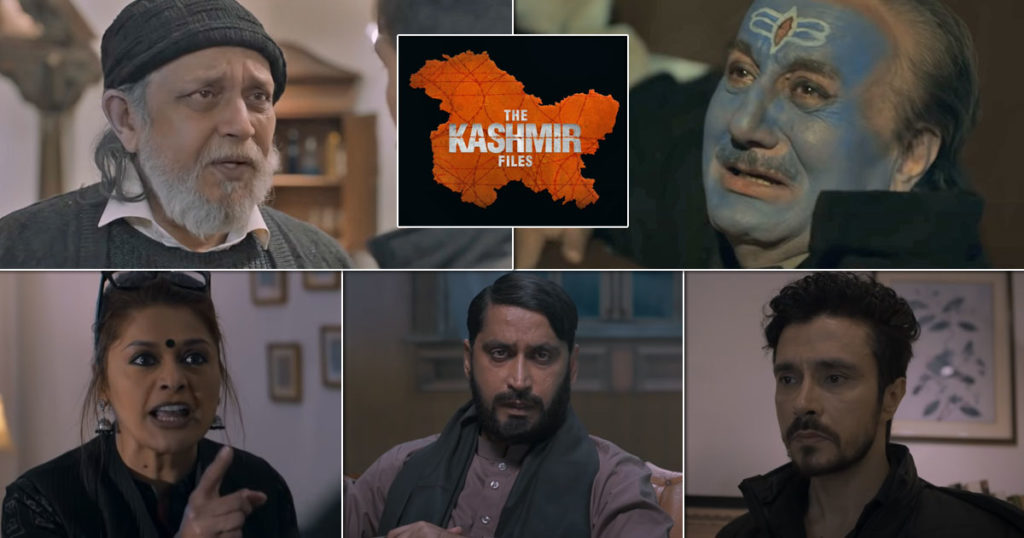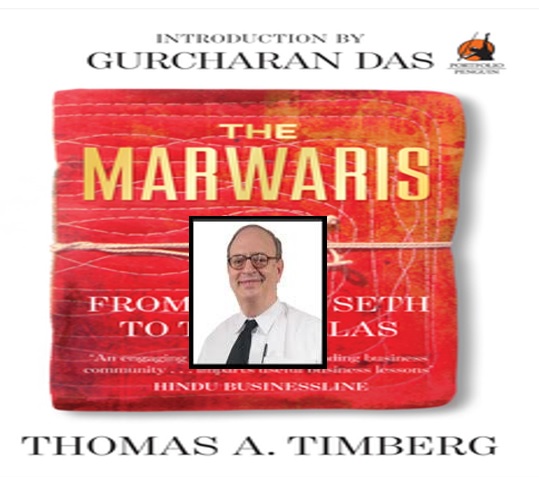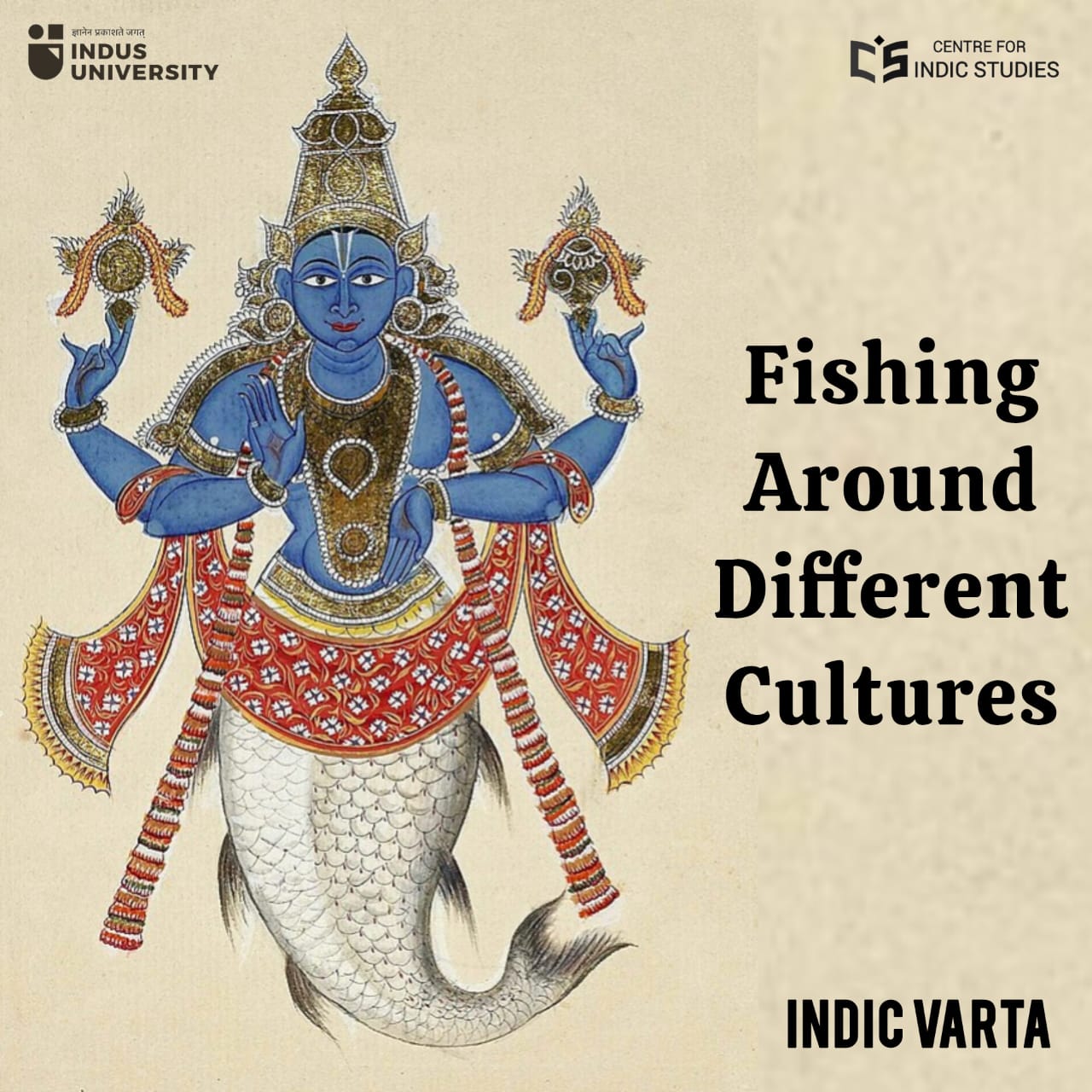- Visitor:47
- Published on:
A Review of The Kashmir Files
This is a hybrid variety of film which documents, yet dramatises it enough to make it a Melodrama – actually a Tragedy, yet with rays of hope trickling in.

I watched with great anger gradually brewing in me over the 170 minutes of the film ‘The Kashmir Files’ the third show in a Pune multiplex on March 11, when it was first released in India. My anger was not only directed against the Islamic Jehadi-s killing innocent Kashmiri-s, especially Pandit-s, but also against their elite ecosystem comprising Leftists, the then politicians, journalists, teachers, and their handlers from outside India.
The emotion was so overwhelming that I shouted at a person sitting in the row behind my seat number H-10 when his phone rang loudly. Some viewers did the same at others who were speaking over their mobiles during the show. The near house-full cinema hall had actually become a part of Vivek Ranjan Agnihotri and Pallavi Joshi-s passionate attempt to tell what happened in Kashmir in 1990 – Genocide of Kashmiri Sanatani-s! Not a mere ‘exodus’ as the ecosystem would like us to believe.
Yet a senior journalist without watching the film threw some ratings by the same ecosystem to prove how bad the film was. Ratings posted that only some emotions expressed by a character played by Anupan Kher was worth watching. Do you know what the journalist friend reverted when I sent him a message featuring Prof Anand Ranganathan tweeting inter alia, “It is our duty to see this film?” The ‘Journalist’ asked “Has Javed Bhai or Gulzar Bhai seen the movie?” He said something to the effect that had they recommended it? “If not, there is no point wasting time…” he reverted rather condescendingly.
But today, (12.03.2022) when the film has reportedly already made Rs 4.5 crore in India on the second day of its release. The same friend reverted saying, “Let’s debate on Twitter or FB,” and he wanted me to post my views there. My response was that such a debate was possible by only those who had watched the movie. To this scientific and perfectly logical retort he said, “Then go and debate with those who have seen it,” which I see as abandoning the battle ground and running away. “So I see this as an acceptance of Check-mate,” was my closing remark. Truth has to win.
As a general reviewer and not as trained cinema critique, I think this review will appeal to the common reader and cine-goer.

This is a hybrid variety of film which documents, yet dramatises it enough to make it a Melodrama – actually a Tragedy, yet with rays of hope trickling in. However, it actually underplays the romance of Kashmir as a beautiful place ‘heaven on earth’. So, the viewer does not fully experience the land’s transition to a hell-hole that Jehadi-s converted it into. That, was anyways not the purpose of the film.
It is not that there is nothing to criticise in this very hard hitting and disturbing film, but what one sees is a fresh approach – a no-holds-barred approach to tell the truth. And to tell the truth with great braveness and simplicity in order to break the thick layer of ignorance created by a war of narratives in which truth was silenced for too long.
A friend tells me, however, that the film was further edited to show in India. The un-cut version post-CBFC was shown abroad. So…aren’t we still cowards – unable to face the truth? Our collective neglect of the gnocchi of Kashmiri Santani-s?
‘Convert, Leave, or Die’ was the slogan of Kashmiri muslims in 1990, converted from the Santana Dharma by Sufi-s just a few generations back. Imagine the deep indoctrination and hatred for their own brothers, sisters, mothers, and children who had not converted.
This is a movie underscoring the word Kashmiri ‘Genocide’. Journalists, so-called intellectual, politicians, and even the current Lieutenant General of J & K term this as ‘exodus’, but the truth that it was a genocide is shown in ‘The Kashmir Files’. Mainly the Brahmin-s were targeted. It was actually a repeat of the genocide of Konkanastha Brahmin-s after the killing of Karamchand Gandhi.
Yet, the administrations after the partition of India, looked the other way merely because it is such a minority in the world. The film tells many truths that even the administration today wants to turn a Nelson’s Eye towards: that Santani Kashmiri-s were forced to convert to Islam; that it was a genocide by Muslims of Kashmir and not by Pakistani-s alone; that Kashmiri Sanatani-s were rendered a minority and that Muslims were not a minority; that there were a total of six genocides in Kashmir and the seventh one was the most horrible; that the establishment at times have been hand in glove with Jehadi-s; that Jehadi-s dressed as Indian Armymen killed more than 24 Kashmiri Sanatani-s in one incident including children, women, youngsters, and the aged;… the list of truths is rather long and excruciating.
Yet, these truths were hidden from the public of Bharat. The film raises the philosophical question – What kind of politics is this? I ask – why even today, the Supreme Court threw out a petition in 2017 seeking justice, stating “very difficult” to gather evidence being a very old case? The film asks ‘What is justice’. I ask ‘if you don’t add up to a large vote-bank, will you get justice?” I ask is this not majoritarianism now?
But all these questions are deliberately and conveniently turned up-side down in favour of the perpetrators of genocides – Hindu Kush, Moplah, Mughal India, Partition of India, Direct Action Day in Calcutta, Ahmedabad-Varanasi Sabarmati Express set ablaze at Gujarat’s Godhra, again the list is too long.
Yet, even today’s government does not term Jehadi killings of Sanatani-s as ‘Genocide’ and register it as such in the relevant UN body. It takes the demographic changes sweeping Bharat like it once swept Kashmir lightly. In almost all the border states of Bharat, Sanatani-s are soon dwindling in numbers.
The film also rightly declares that the ‘cradle of civilisation’ – Kashmir was reduced to a crematorium of Sanatani-s merely out of jealousy, hatred, extreme bigotry, lust, greed, fear of the knowledgable, and finally Jehadi Islamic expansionism.
I must underscore the acting prowess of Pallavi Joshi who brought out perfectly well the role of education (as Prof. Nair of a prominent University) in step-by-step catalysing, indoctrinating students, and then participating in Jehad. As a viewer I hated Mrs Nair so much that I hoped that she be killed.
Mithun Chakraborty is unparalleled – especially when he talks to Krishna Pandit the Kashmiri student of Nair. But he stands very tall as an actor walking with his right leg paralysed in most part of the film. He plays the role of the then governor of Kashmir – probably Jag Mohan who is soon suspended by the CM for his anti-Jehadi stance.
One can never stop praising Anupam Kher (Pushkar Nath) for his perfect rendering of a Kashmiri language of his times. He is at his best in several shots, but when he is shown in a refugee camp in Jammu opening a steel box with a few biscuits left in it and he is merely licking a single biscuit for many days on end to quench his hunger. It underscores the neglect J & K administration of Kashmiri Pandit-s.

A rather tough role of a Kashmiri university student – Krishna Pandit enacted by debutant Darshan Kumaar who is struck by the Stockholm syndrome which he is very successfully. Did we allow Jehad to grow too big? Did we not recognise the enemy of Islamic Jehad? After the genocide did we care enough? Will Kashmir repeat everywhere? In any case…clearly Indians should feel ashamed of ignoring the simple, peace-loving, intellectuals of Kashmir?
Center for Indic Studies is now on Telegram. For regular updates on Indic Varta, Indic Talks and Indic Courses at CIS, please subscribe to our telegram channel !
- 23 min read
- 0
- 0










